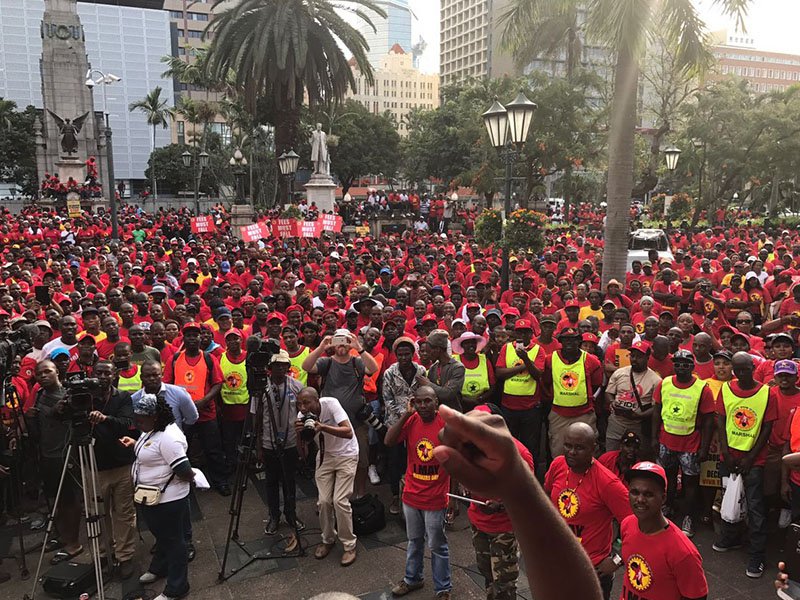Firstly, we tend to compete or prove the other wrong. That is what makes us human.
There is no harm in having these(economic) arguments and using the brain rightfully in reasoning and finding solutions. The issue, however, is that we think that any theory brought forth is fit for every context.
Consider the declaration by SAFTU, a federation of trade unions from the Republic of South Africa, below.
At the 2nd National SAFTU Congress in late May 2022, we adopted a declaration that, amongst others, declared that “we are moving beyond divisiveness in favour of principled unity and recommit to building a fighting trade union movement guided by Marxism.”

Keyword – Marxism.
SAFTU has a reasonably good record for championing worker rights, uniting all workers under one banner from the workplace to the community, reversing the fragmentation of unions, and allowing for mergers where appropriate.
But any organisation is bound to have pros and cons.
On the same breath, you have private firms that may not cede to the same theories and objectives. Who’s correct?
The reasons
So here are some reasons economists can never see eye-to-eye on which economic theories to use. By the way, it all depends on how deep the government will vest:
Different forms of thinking: Some advocate for a ‘hands-off’ approach, and some don’t. The former are called agents of a ‘free market.’
Usage of different tools to measure the economy: Whilst some would show the hard data, i.e. figures for unemployment to GDP to debt owed, some would, and likely for the fun of it, play devil’s advocate and initiate a horrendous loop-back of arguments. In the end, and in economists fashion, they would retreat to their respective nests but the country would remain burning the same.
There’s no change in indifference: Whether economists see or like it, disagreements are a natural order of life. To call them law wouldn’t be far-fetched. However, differences themself are not the full story either; some other factors decide the fate of the economy, like vested interest and simply because risk looks different for different investors. Adversity needs perspective. This precedes the next point.
Possible solution(s)?
One of the ways to move forward is to build our own economic models of sorts. The idea is to practice creativity by finding what works for us. In the language of entrepreneurship, we’d say ‘find interesting stuff to solve’. But! with our strained in and outlook, what are the odds for that? If anything, this would be the best turnkey solution to solving our individual issues.
This brings me to the next point. I don’t believe the best solution(s) for the majority of people’s future problems will come from an economic theory, unless it’s a helluva one. Rather from people collaborating in some micro-forms to build models of their own.
This will usher in new insights into economic models. Agrarian societies have their own models comprising an equal share of the land and its produce amongst the people In some communities, they form a value chain around a barter-like exchange of commodities. Economics mean that people will find their ‘how’ based on the ‘why’ that their systems are giving them.
Ultimately, we will evolve where we can and share that little. We will preserve our heritage.
Thanks for reading.
Kamohelo.



Brilliant
In our ever globally connected world, big conglomerate companies or organisation will influence our economic perspective and direction.